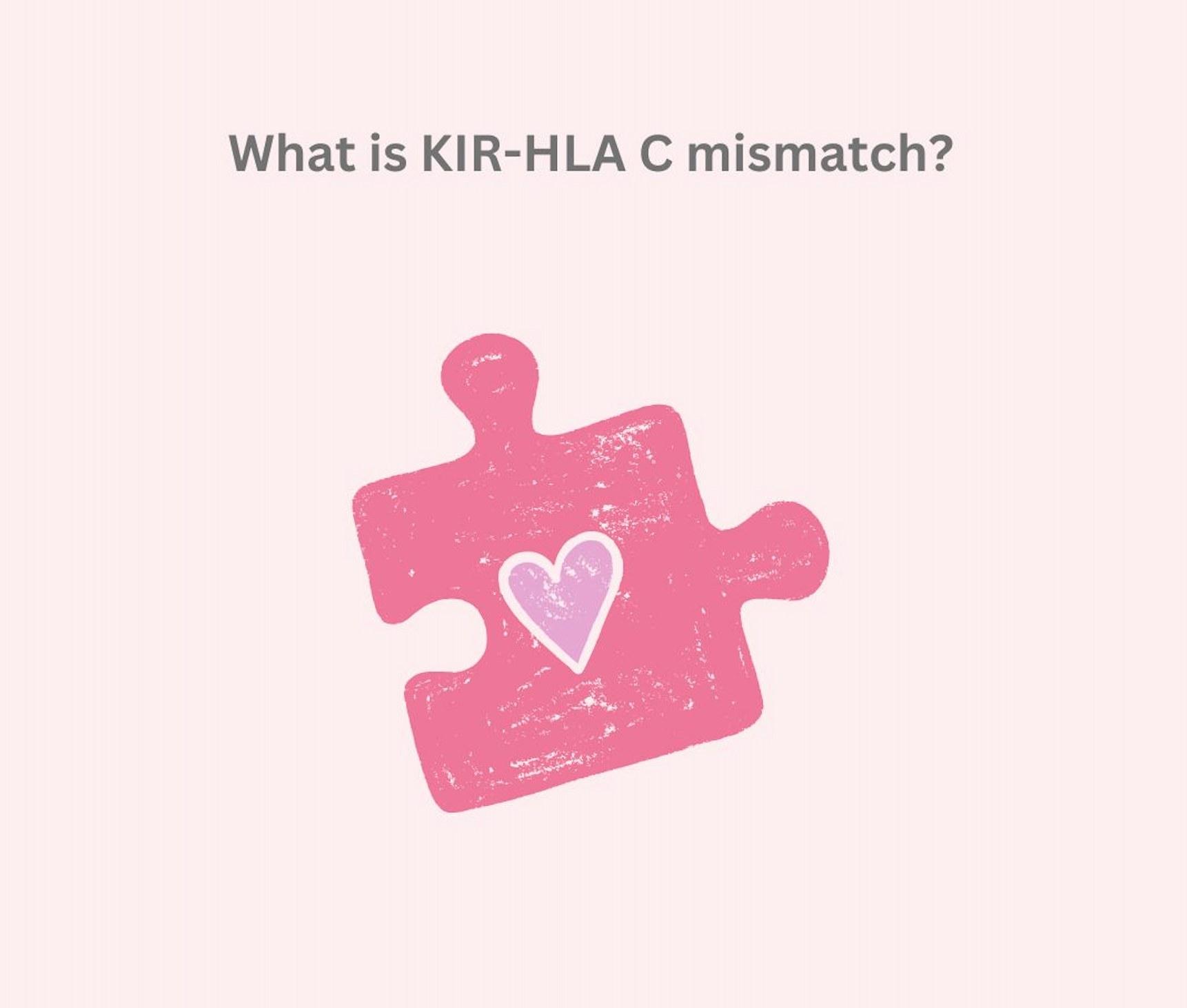
a dysregulated immune system can cause unexplained infertility.
Have you checked yours?
This panel represents our most comprehensive RI testing which includes both the Autoimmunity and the Alloimmunity Dysfunction testing panels, allowing investigation of autoimmunity risk factors for infertility as well as risk factors due to immunological incompatibility between the fetus and the mother. In a healthy pregnancy, the mother's immune system undergoes a special adaptation process allowing it to protect the fetus by developing active immunological tolerance. This adaptation is crucial to prevent rejection of the embryo due to genetic disparity between the mother and fetus. Active immunological tolerance involves the mother's immune system successfully identifying the embryo and adapting its presence to prevent rejection, while also promoting essential processes for implantation and maintaining the pregnancy. This recognition often involves human leukocyte antigens (HLAs) which aid in identifying the embryo as "self." Additionally, regulatory T cells (Tregs) and uterine natural killer cells (uNKs) expressing killer cell immunoglobulin-like receptors (KIRs) play critical roles in modulating the maternal immune response and facilitating embryo implantation. Often, a dysregulated or imbalanced maternal immune response, characterized by elevated levels and activity of cytotoxic peripheral blood NK cells (pbNK) and a shift towards the Th1 proinflammatory response over the Th2 anti-inflammatory response, can lead to reproductive immunopathology. These immune dysfunctions are associated with conditions such as recurrent spontaneous abortions (RSA), idiopathic infertility, and implantation failures in both natural and assisted reproduction attempts, potentially resulting in pregnancy rejection.
FERTILYSIS Reproductive Immunology Full
1390€

Blood Draw

No doctor's referral

Peripheral Blood

Storage & Shipping at ambient temperature

Results in 20 business days
Time matters! FastTrack Results.

Your time matters because your journey should always be a priority, every step of the way.
Fertilysis FastTrack Results stand as a commitment to remove barriers and redefine timelines. Get your test results in 5 working days expedited, from the day your sample reaches us, instead of the standard processing time.
250€
WE GOT YOU.
A potentially hazardous immunological response during pregnancy is more probable when the mother exhibits elevated levels of pbNK cells, facilitating an immunological attack against the fetus. Heightened pbNK cytotoxicity, combined with a propensity for a Th1 proinflammatory response over the favorable Th2 anti-inflammatory counterpart, poses risks for pregnancy. Elevated concentrations and increased activity of cytotoxic pbNK cells, alongside a dominance of the pro-inflammatory Th1 response, have been linked to reproductive immunopathology, including conditions like recurrent spontaneous abortions (RSA), idiopathic infertility, and implantation failure in both natural and assisted reproduction attempts.
A complete reproductive immunology evaluation through the FERTILYSIS Reproductive Immunology Full panel involves the following tests:
✔ NK/Regulatory T-Cell (Tregs) profile
✔ HLA-DQ Alpha matching
✔ NK cell cytotoxicity assay
✔ KIR-HLA-C mismatch
✔ Th1/Th2 cytokine ratio assay
✔ Leukocyte Antibody Detection (LAD)

NK cell profile/ NK cell cytotoxicity
NK cells (Natural Killer cells) are a type of immune cell that play a role in the body's defense against infections and cancer. However, in the context of fertility and pregnancy, elevated NK cell levels in the peripheral blood and, as a consequence, potentially in the uterus, are considered a risk factor for infertility and recurrent miscarriage. Increased, dysregulated NK cell activity in the uterus both in number and toxicity levels may mistakenly attack the developing embryo as a foreign object. This can result in impaired implantation, early pregnancy loss, or recurrent miscarriages.
Th1/Th2 cytokine ratio
The Th1/Th2 ratio relates to the balance between two types of immune cells: Th1 (T-helper 1) and Th2 (T-helper 2) cells. These cells play different roles in the immune system and are involved in regulating immune responses. In the context of infertility, Th1 cells are associated with pro-inflammatory responses and can promote immune reactions that may be detrimental to pregnancy. On the other hand, Th2 cells are associated with anti-inflammatory responses and are involved in promoting tolerance and supporting pregnancy. An imbalance in the Th1/Th2 ratio, with increased Th1 activity and decreased Th2 activity, may create an environment that is less supportive of successful implantation and pregnancy maintenance which may lead to increased inflammation and immune responses that could potentially harm the developing embryo or interfere with implantation.


HLA DQα-1 partner matching
In a healthy pregnancy, the mother's immune system adapts to accept the fetus through active immunological tolerance. This process involves the identification of at least a minimum level of genetic diversity from the father, including diverse human leukocyte antigen (HLA) genes. Studies suggest that fetuses with HLA haplotypes similar to the mother's are more likely to be aborted. Through this test we can predict possible embryo HLA combination and compare to the mother for compatibility.
KIR-HLA-C mismatch
To maintain tolerance, Immune suppressive regulatory T cells (Tregs) and uterine natural killer cells (uNKs) need to regulate the local uterine immunity and prevent rejection of the embryo. The activation of uNKs is facilitated by killer immunoglobulin-like receptors (KIRs), which interact with fetal HLAs. The balance between activating and inhibitory KIRs determines the activation or inhibition of NK cells, crucial for successful pregnancy outcomes. Defective placentation, pre-eclampsia, fetal growth restriction, and recurrent spontaneous abortion are associated with higher frequencies of inhibitory KIRs in women. Specific combinations of maternal KIR and paternal HLA-C genes may indicate a higher risk of infertility. This test allows genotyping of maternal KIR genes and comparison with possible fetal HLA genotypes to predict a possible mismatch.


Maternal HLA-C testing
(Currently, it can be added as an additional single test so that it is included in the full Reproductive Immunology panel)
Until recently, fertility testing only looked at the mother’s KIR genes and the father’s HLA-C type. The mother’s HLA-C was not taken into consideration because it was thought to be a “background factor” with little impact.
But new evidence shows that’s not true. Uterine immune cells react to any HLA-C2 on the embryo — whether it comes from the father or the mother. This means a woman’s own HLA-C type can influence how her immune system interacts with the embryo, especially if she has the inhibitory KIR AA genotype.
By adding maternal HLA-C typing to the evaluation, we get the full picture of compatibility. This matters because:
- It identifies risks that other tests could miss
- It explains why some women experience implantation failure or miscarriage despite “normal” results
- It opens the door to personalized, immune-based treatments that can improve pregnancy outcomes
Including maternal HLA-C makes the test more accurate, more actionable, and more valuable for guiding treatment.
Lymphocyte Antibody Detection (LAD)
It is a specialized infertility test aimed at assessing immune compatibility between partners. This test is particularly relevant in cases where there are recurrent pregnancy losses or unexplained infertility. During LAD testing, the blood of the female partner is analyzed to detect the presence of antibodies that may react against her partner's lymphocytes. The rationale behind this test is based on the concept of immune-mediated infertility, where the female partner's immune system produces antibodies against the male partner's cells, as a measure of the levels of blocking antibodies and protective antibodies which need to be produced during pregnancy to stop maternal immunological response against the fetus. Overall, LAD interpretation and utility should be evaluated in conjunction with other clinical findings and diagnostic tests.

A couple may consider testing for reproductive immunology problems if they experience recurrent pregnancy losses, unexplained infertility despite regular attempts to conceive, or implantation failures in assisted reproductive technology (ART) cycles such as in vitro fertilization (IVF). Additionally, if either partner has a history of autoimmune disorders or immunological conditions, or if there are indications of immune system dysregulation, such as chronic inflammation or suspected immune-related reproductive issues, testing for reproductive immunology problems may be warranted.
• When you have a history of recurrent miscarriage and/or chemical pregnancies
• When you and your partner have been diagnosed with “unexplained infertility”
• If you experience primary or secondary infertility, naturally or through IVF with:
• When you have a history of unexplained pregnancy complications of the 2nd & 3rd trimesters such as:
At Fertilysis, we specialize in Reproductive Immunology. Based on your results, we can provide personalized recommendations and immunomodulatory treatments to optimize the chances of a successful pregnancy. By understanding the role of the immune system in maternal-fetal tolerance, interventions can be tailored to address specific immunological factors that may impact pregnancy outcomes.
Main Treatments:
Treatment for reproductive immunology problems typically require a healthcare professional specialized or well-versed in reproductive immunology and its specialized therapies. Each detected problem has its own recommended treatment(s) and each treatment is tailored to address specific immune system dysfunctions and optimize fertility outcomes. If you don’t have access to specialized treatment protocols then we will be able to provide protocols for the treatments we consider appropriate based on your Fertilysis results and your medical history following a specialized follow-up, on-line consultation with our specialist. However, even so, you will need to have a local healthcare professional who will be able to help implement and supervised said therapies included in our protocols and prescriptions.
Immunomodulatory therapies:
Infection/Microbiome testing:
Accessory Treatments:
Other treatments to help with reproductive immunology infertility-related problems may include a combination of medical interventions, lifestyle modifications, and dietary adjustments. Some potential treatments and lifestyle adjustments may include:
Dietary adjustments:
Lifestyle modifications:
Supplementation:
Stress reduction techniques:
FERTILYSIS Reproductive Immunology FULL
FERTILYSIS Recurrent Pregnancy Loss (RPL)
HOW IT WORKS.

Place your order online and get the FERTILYSIS box delivered at your home.

Follow our instructions to collect your samples and ship them back to us for analysis.

Receive your easy to understand results including treatment suggestions in just a few days via email.
Is your infertility really ‘’unexplained’’ or are you still undiagnosed?If you have been struggling with infertility and haven’t been getting convincing answers, chances are you are still missing a piece of the puzzle.
SINGLE TESTS
HLA DQα matching between partners
390€
HLA-C (maternal)
220€
HLA-C (paternal)
220€
KIR-HLA C mismatch
850€
KIR typing
580€
STILL HAVE QUESTIONS?

These our the most common questions regarding this panel.
If you have more, please refer to our Q&A page.
While assessing cytotoxic NK cell levels through a uterine biopsy may seem preferable as it samples directly from the area of interest, it is actually less accurate due to fluctuations in cytotoxic NK cell levels and variations in samples. A more reliable alternative is analyzing NK cytotoxic levels from peripheral blood, as uterine cytotoxic NK cells are ultimately derived from the peripheral blood pool. Research has demonstrated a strong correlation between uterine cytotoxic NK cells and NK cytotoxic cells in peripheral blood.
Absolutely! Our tests are accessible worldwide, allowing you to conveniently perform them from the comfort of your home, regardless of your location. We ship worldwide!

